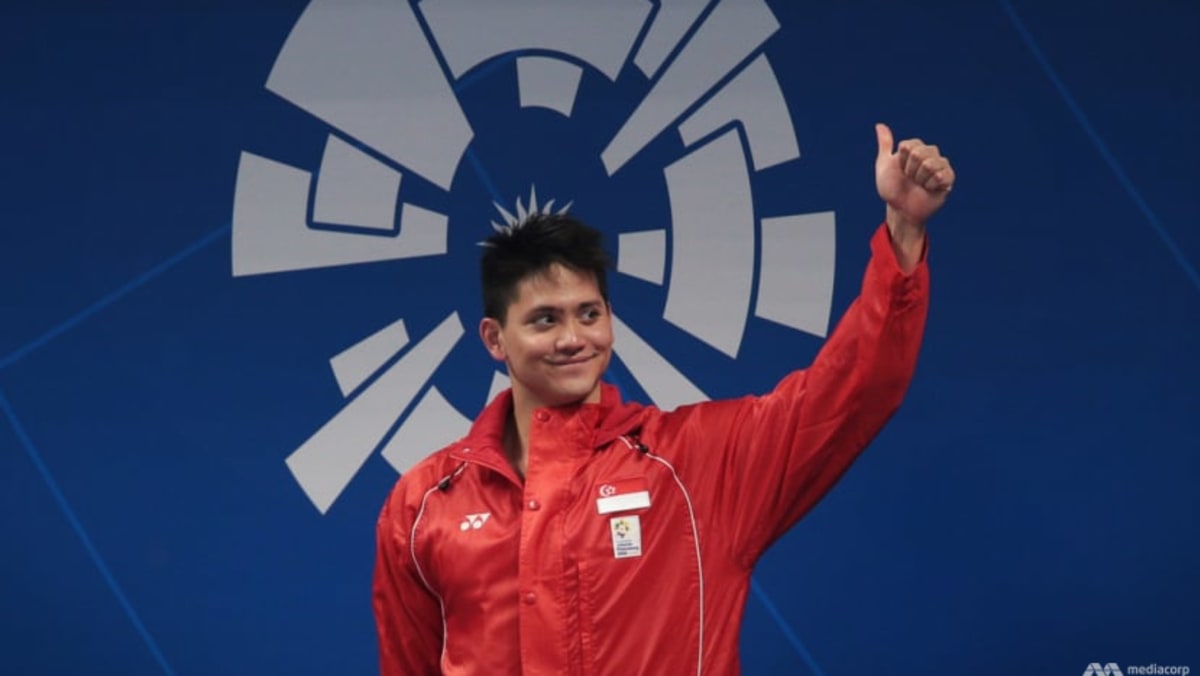Training restrictions during NS will seriously impact Joseph Schooling’s career, say ex-national swimmers
SINGAPORE: Not allowing Joseph Schooling time off to train while in National Service (NS) will have serious repercussions on the Olympic champion’s career, said former national swimmers whom CNA spoke to.
The decision was made by the Ministry of Defence (MINDEF) following Schooling’s admission that he consumed cannabis overseas in May, while on short-term disruption from NS to train and participate in the Southeast Asian (SEA) Games.
Given this “abuse of disruption privileges”, Schooling will no longer be eligible for leave or disruption to train as well as compete while in NS, said MINDEF on Tuesday (Aug 30).
The 27-year-old enlisted for NS in January this year.
Schooling and fellow national swimmer Amanda Lim had been investigated by the Central Narcotics Bureau for possible offences related to the consumption of cannabis.
Both their urine tests came back negative.
Lim, 29, received a stern warning for possessing a “drug utensil”, Home Affairs Minister K Shanmugam said on Thursday.
‘CAN’T AFFORD’ TO TRAIN ON WEEKENDS ONLY
Retired athletes emphasised to CNA the need for Schooling to train consistently to maintain a high level of performance at the elite level.
In an interview with CNA in April, Schooling said his training schedule allowed him time in the pool twice a day – before he books into camp, and after he books out. He would also train on Saturdays.
“Given the circumstances where his privileges of coming out to train have been taken away, I think it’s going to be very hard, especially for him, to retain the kind of level that he’s used to,” said 19-time SEA Games champion David Lim, adding that this could make things “ten-fold” more difficult for Schooling.
“At this level, the margins are so small. It is that extra few sessions a week that you put in that will give you the small margin, the edge.”
Ex-national swimmer Tao Li also pointed out that each and every session counts. Should Schooling only be able to train on weekends, it would not be enough, she noted.
“You have to do like probably 10 sessions a week to keep at your level. If one or two days you’re not training, it makes a huge difference,” she explained.
“Training is the foundation. The basic of basics. If you don’t have training, no matter how talented you are, (there is) no point.”
The 32-year-old Tao, who remains Singapore’s only female swimmer to qualify for an Olympic final, said different training sessions serve different purposes.
“Every day (you have) different targets. Today we’re doing long distance, the other day we’re doing sprints. You miss one day, the other day you need to make up again,” she stressed.
“At the highest level, you need to maintain (your level of excellence), before you can improve.”
Former Olympian May Ooi said that only being able to train on weekends would effectively cripple one’s career in “ways that cannot be recovered”.
“You can’t afford to only train two days a week, and try to maintain that competitiveness. Swimming is not one of those sports where you can do that,” she explained.
Training on weekends only would mean that one is no longer a high-level athlete, said Lim. “You are a weekend swimmer … You may not even make the team.”
For all the latest Sports News Click Here

